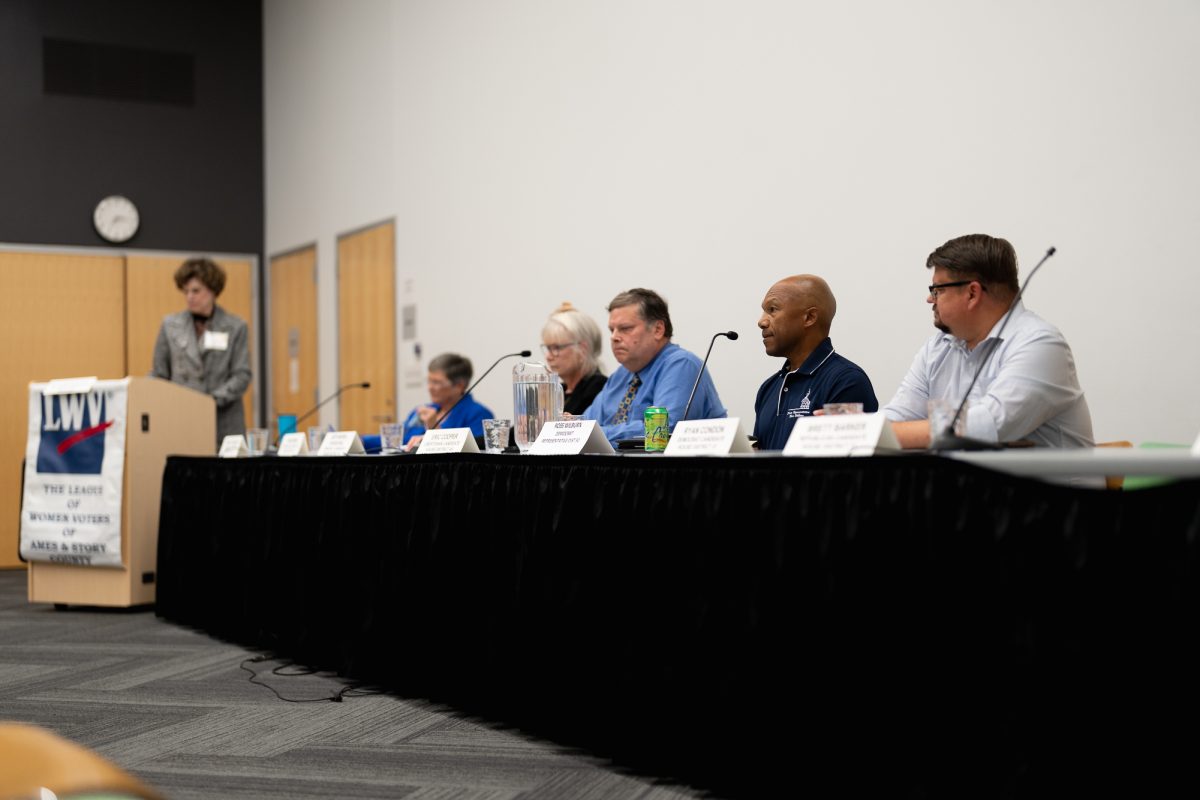Entertainment, Inc.
February 3, 2000
What’s nameless, faceless, homeless and speaks the most recognizable phrase for any Internet surfer? Those who subscribe to America Online can tell you. For some, it’s their favorite moment of the day. It’s the moment the AOL mystery voice says, “You’ve got mail.”
With the latest mergers between media conglomerates and Internet providers, most notably Time Warner and America Online, no one is cheering more than AOL’s famous orator.
Once the marriage between the media giant and the Internet sparkplug is complete, that voice will utter, “You’ve got music, movies, books, magazines, daily news, etc.”
The result will be a massive change in the face of entertainment and consumerism as we know it. How much will our methods of enjoying entertainment change? Where will we find artists on independent labels? Will visits to movie rental stores be a thing of the past? Are the days of holding a hardback novel extinct?
The Big Picture
Despite representatives from America Online declining to comment, many entertainment and media gurus share their projections.
The experts concur that the impact of these mergers will be astonishing, but there will always be channels for everyone to find their entertainment pigeonhole.
Barbara Mack, associate professor of journalism, believes this merger will have huge consequences for both companies.
“This combination gives Time Warner unlimited access to Internet channels,and it gives AOL the wealth of information and media Time Warner possesses,” Mack says. “It will make it much harder for smaller Internet companies to compete.”
David Stuart, associate professor of music, teaches classes on music theory and the history of rock and roll. Stuart contends that a saturation of popular culture may result from entertainment corporation giants joining forces, but he agrees that those looking for their niche market will be able to find it.
“If I am a ’60s kid and if I like off-road motorcycles, I can get a magazine that will fit what I like — but it is made poorly,” Stuart says. “Now, because of niche marketing, you can get things about obscure goods and services that are high-quality productions.”
Stuart doesn’t see conformity in human nature.
“We’ve always worried about everyone conforming. I think there is something to say about diversity and niche marketing,” he says. “As long as it doesn’t become monopolized, there will be someplace for all consumers to find what they want.”
Mack, who instructs classes in media law and media management, thinks the presentation of the AOL/Time Warner Web site will seem overwhelming and will include features designed to promote their most celebrated entertainers.
“If Time Warner/EMI decide they want to promote Mark Anthony, everyone who logs on to AOL will get their very own audio/video promotion of Mark Anthony,” Mack says. “When you have a huge number of people using the same Internet provider, it will expose everyone to popular culture and the new entertainers will have a harder time.”
Chris Nelson, senior writer for SonicNet Music News, a division of the MTV interactive group, predicts a similar fusion of entertainment marketing and Internet efficiency.
“I think AOL/Time Warner will take advantage of the AOL half of their name,” Nelson says. “With AOL behind them, they will push the digital realm of their media. Once people have the fast connections to the Net, music marketing will proceed with that.”
Nelson adds that within the circus under the AOL/Time Warner bigtop, there are channels to find the tiniest of entertainers.
“What’s going to be hard is making sure you’re heard above all the clamor,” Nelson says. “It’s going to become increasingly hard, but the avenues are there to do it.”
One of the experts takes a unique stance on the population flood towards trendy culture.
“The percentage of people that watch MTV to the people that watch PBS is ludicrous,” Stuart contests.
Stuart reminds both consumers and entertainers alike that ultimately, you decide how these changes affect you.
“If you’re not curious enough to look around on your own, you’re going to turn into exactly what popular culture promotes,” Stuart says.
Independent Labels vs. Media Mammoths
A combination of an Internet superstar and a media monster may provide ease and efficiency in entertainment commerce, but what will happen to the nonaffiliated entertainers who will inevitably collide with the large labels? Will they be squashed and never heard from again?
Consumers may always find what they want on the Internet, but Mack and Stuart are skeptical concerning the smaller Internet providers’ and independent artists’ ability to compete with the media giant we will know as AOL/Time Warner.
Mack is also concerned for those artists representing smaller music labels, book and magazine publishers and film producers.
“It becomes harder for someone like Ani DiFranco to compete on a label like Righteous Babe,” Mack says.
Looking back to the Universal/Polygram merger, Nelson says that a massive reconstruction of the industry was underway.
“A lot of bands were removed from the label when Universal and Polygram consolidated,” Nelson says. “It has only been a year since then, and the independent music scene came back very strong; it might be something like a renaissance.”
Many independent artists also face a big decision as this merger develops.
Eric Yarwood, coordinator of the Maintenance Shop, says a lot of smaller groups were dropped when Geffen and Virgin records merged, but there is still hope for indie entertainers.
“You’ll see some of the smaller names on larger labels disappearing,” Yarwood says. “Some of the smaller artists will be scooped by other labels or start their own. In the long run, I think they will be better off.”
Once the musical giants get themselves together, Stuart says, it might make it less possible to access the independent entertainers out there.
“From my experience, people tend to have fewer choices after a big merger of this sort,” he explains. “The independent labels will always be there; we will still be able to get them. The biggest names will just get bigger.”
Some of the bands who may be affected by the merger because of their labels include Smashing Pumpkins, Filter, Kid Rock, Stain’d, Goo Goo Dolls, Metallica, Stone Temple Pilots, Phish and many more.
Though Stuart predicts that popular culture might become a bit overwhelming, he remains optimistic.
“If you look at cable T.V., with the hundreds of channels out there, it is still economical to have a channel like Sci-Fi, which is devoted to one niche. My hope is that will exist with music,” Stuart says.
Mack addresses the damage caused by MP3s (music files illegally downloaded from the Internet) and the Napster community.
“Music creators may be happy by this change because they will be able to sell most of their stuff on the Internet,” Mack says. “If you’re Savage Garden, how do you get paid for all of your recordings that are being downloaded for free?”
Throughout the history of rock and roll, people have always been worried about protecting their material.
“Whether or not we produce CD burners or DAT machines, artists and producers will always have to worry about piracy of tunes,” Stuart says.
Yarwood also agrees, citing former M-Shop performer Tina Schlieske, who is beginning a solo career.
“Tina used to be with Warner Bros. when she was with B-side Movement,” Yarwood says. “Now that she is independent, she is doing more Internet marketing and developing a stronger fan base. I think you will see a lot more of that.”
Nelson concurs that we won’t see too much change in Internet marketing strategies from artists on indie labels.
“The biggest problem for those groups is distribution. They have jumped on [Internet marketing] because they hope to distribute more,” Nelson says. “I don’t think this will encourage indies to push their net market harder, because they have already been doing this.”
There is debate whether artists belong with a big-name producer on a monster label. It comes down to which the artist values more — promotion or artistic integrity?
“An artist is always better off with someone who promotes them well and protects their material,” Stuart says. “If an artist thinks they can get a better entertainment lawyer than David Geffen, they’re nuts!”
Yarwood takes a different perspective, saying that budding artists should try to avoid the middle man.
“A lot of the acts we bring in are on smaller labels,” Yarwood explains. “By them touring and not being dictated by the larger label, you’re dealing with less middlemen. It can lead to better music.”
Good promotion is essential to any budding artist.
“If you are a talented performer and have something to say, you should be able to get your name out there,” Stuart says.
The Future
In response to recent mergers, many anticipate other unification between Internet service providers and multimedia corporations. Will we see an influx of popular culture in heaping spoonfuls? Will competition in these markets disappear?
“People think corporate giants are greedy, but there are going to be a lot of people within those corporations with wonderful ideas.
“If their voices are heard, this will lead to really great things,” Stuart says.
Nelson is also to see the changes in the entertainment industry.
“It’ll be something to watch. One of the things to look out for will be the development of what used to be the big six of the entertainment industry,” Nelson says.
“When Universal and Polygram consolidated, it became five. Now with the combination of Time Warner/EMI, it has become the big four.”
Most distress comes from people directly involved with these companies.
“I’m less concerned with AOL/Time Warner than I am with Time Warner/EMI,” Stuart says.
“Because of [the Time Warner/EMI merger], like any other merger between similar companies, a lot of people are going to lose their jobs,” he says.
While benefits will be easy to notice, Mack adds, there are a few areas of our country that will experience setbacks.
“Some of the larger communities will have free Internet, while the smaller towns will be hurt by the large conglomerate,” Mack says.
Have no fear. Some feel that those developing new technology are driven by positive forces.
“Technology is something that keeps moving, driven by two things at once,” Stuart says. “One, people think that there should always be an easier way to do something. Two, when the radio and telephone were invented, most thought it would bring people closer together.”
E-commerce should also benefit entertainers of all sorts. The smallest of artists are now able to sell their work internationally.
“The Time Warner/EMI deal creates a huge availability for marketing and production of whatever they want,” Mack says.
“In about 15 years you’ll see a real switch. The majority of consumers will be spending money through E-commerce.”
The best is yet to come. Fantastic developments in technology will begin to create in-house entertainment centers with infinite capabilities.
“People who study the future talk about technology convergence,” Mack says. “You will have a big screen built into the walls, television, music, Internet, DVD, telephone, etc. You will just walk in, say ‘screen on’ and go from there.”
Stuart ventures one final caution to the consumer of the Internet/media conglomerate.
“Americans don’t like arrogance. Microsoft gave an arrogant impression to people,” Stuart warns. “The American mentality is this: If [arrogance] is your attitude, we don’t want you.”
Make no mistake — media conglomerates will change the face of entertainment forever.
“It is amazing how pervasive the AOL/Time Warner combination is,” Nelson says. “It’s amazing how many ways it will touch our lives.”






